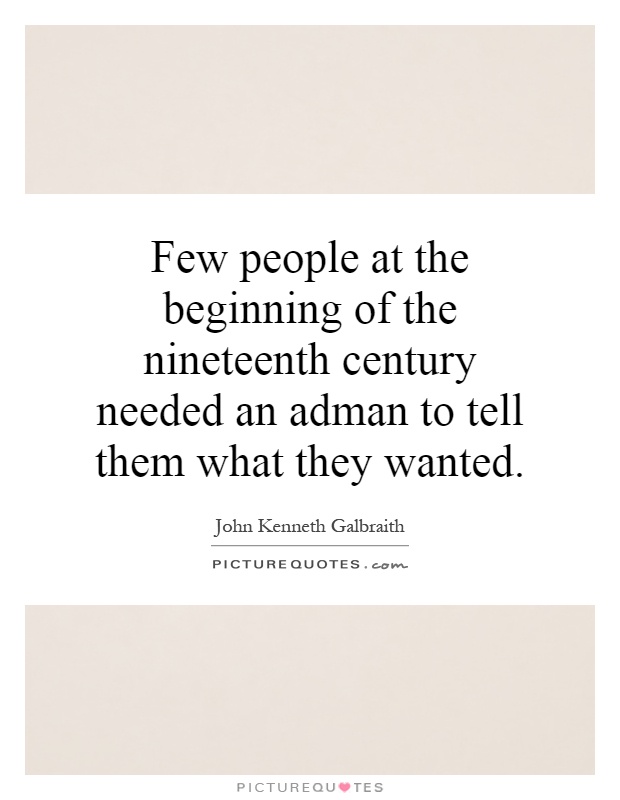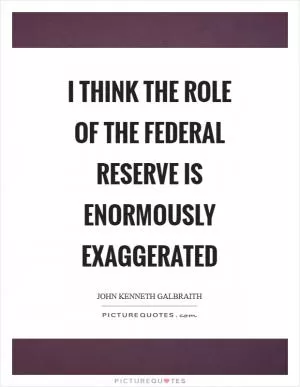Few people at the beginning of the nineteenth century needed an adman to tell them what they wanted

Few people at the beginning of the nineteenth century needed an adman to tell them what they wanted
John Kenneth Galbraith, a renowned economist and public intellectual, made the statement that "Few people at the beginning of the nineteenth century needed an adman to tell them what they wanted." This statement reflects his belief that in the early 1800s, people were not heavily influenced by advertising and were able to make their own decisions about what they wanted and needed.Galbraith's assertion is rooted in the idea that consumer behavior was different in the past compared to the present day. In the early 19th century, before the rise of mass advertising and consumer culture, people were not bombarded with advertisements telling them what products to buy or what services to use. Instead, individuals made purchasing decisions based on their own needs, preferences, and experiences.
During this time, people were more likely to rely on word-of-mouth recommendations, personal experiences, and the advice of trusted friends and family members when making purchasing decisions. They were not constantly exposed to advertisements promoting the latest products and services, and therefore were not as easily swayed by marketing tactics.
Furthermore, the economy of the early 19th century was vastly different from the consumer-driven economy of today. Industrialization was still in its early stages, and many goods were produced locally or within small communities. People were more self-sufficient and relied less on mass-produced goods and services.












 Friendship Quotes
Friendship Quotes Love Quotes
Love Quotes Life Quotes
Life Quotes Funny Quotes
Funny Quotes Motivational Quotes
Motivational Quotes Inspirational Quotes
Inspirational Quotes